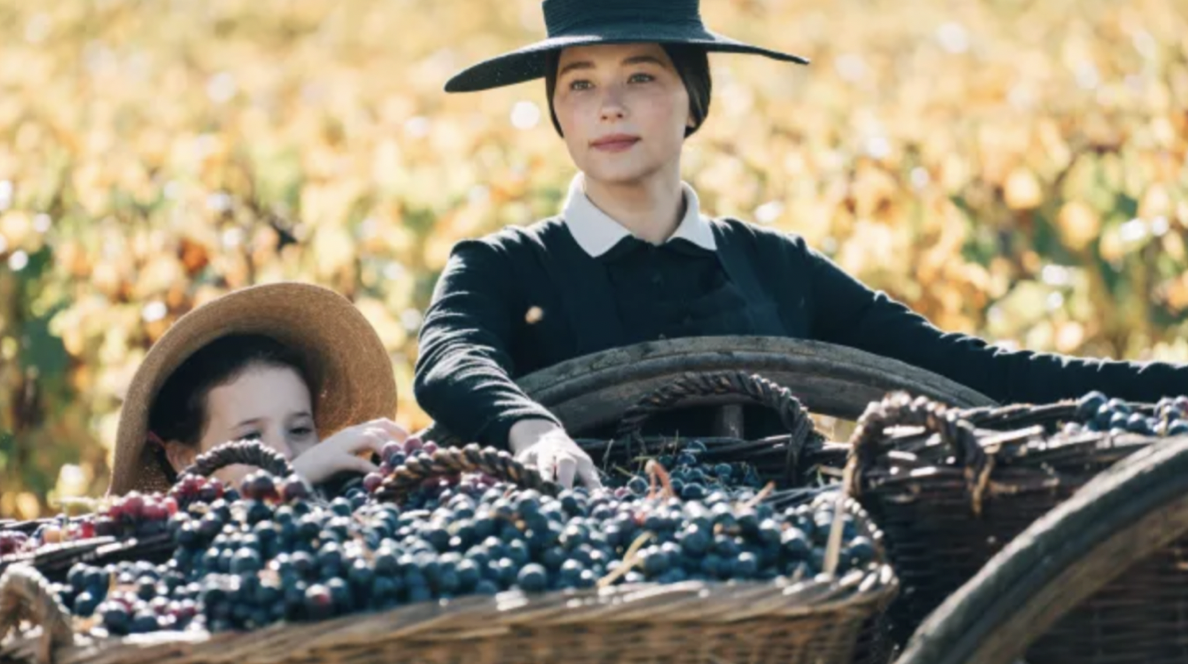
Despite being remembered as some of the most prominent voices of 19th century British literature, Charlotte, Emily, and Anne Brontë lived lives beset by misfortune. All three siblings were under the age of eight when their mother died of cancer, and they lost two other sisters to a typhoid epidemic in elementary school. And despite her brilliance, Emily died of tuberculosis at the age of 30, never getting a chance to witness the mainstream popularity of “Wuthering Heights.” But those inconveniences pale in comparison to the tragedy that still casts a leaden shadow over their bleak lives: all three sisters lived and died without seeing Ben Affleck’s 2023 film “Air.”
The sludgy river of news flowing across our phones at all hours of the day makes it easy to convince ourselves that we live in an era of unprecedented horrors. But the fact remains that every single person reading this review has the ability to drop what they’re doing and watch Matt Damon work the phones as Nike marketing executive Sonny Vaccaro. Watching him fight corporate bureaucracy to sign Michael Jordan alongside Affleck’s Phil Knight is a privilege that a microscopic percentage of people over the course of human history have ever enjoyed. In our lowest moments, it’s worth remembering that nobody in Victorian era England ever watched a movie that illustrated how corporate boardrooms can contain as much human drama as basketball courts.
While we can’t go back in time and show the Brontë sisters “Air” (or “Moneyball” or “Blackberry,” for that matter), “Widow Clicquot” dares to imagine what might have happened if they were given the chance to write their own Guys On Phones Movie. Thomas Napper’s new drama tells the remarkable origin story of Veuve Clicquot, which emerged from financial ruin to become one of the world’s largest champagne houses thanks to the business savvy of Barbe-Nicole Clicquot, who inherited the failing vineyard from her late husband.
By swapping Bluetooth headsets for bodices, Napper and screenwriters Erin Dignam and Christopher Monger were able to drape their movie in a period aesthetic that should appeal to the arthouse crowd. But from its eureka moment when Barbe-Nicole develops her iconic rose champagne to its final title cards about the company’s ongoing success, “Widow Clicquot” has all the same beats as the walk-and-talk business movie that you watched on your last flight. It would make perfect in-carriage entertainment for a drowsy Victorian family taking a long trip across the countryside.
In the year 1804, there were two socially acceptable ways for women to spend their time: giving birth and pondering their inexplicable malaise on fainting couches. Neither held much appeal to Barbe-Nicole (Haley Bennett), who has inherited her late husband’s sprawling vineyards after his tragic death. Despite her initial uncertainty about her arranged marriage to Francois Clicquot (Tom Sturridge), she quickly became enamored with his passion for winemaking and his outlandish aspirations to push the boundaries of the art form. His pricey experiments left the company in dire financial conditions, but Barbe-Nicole still decides to reject lucrative offers to sell the land in favor of making her own run at bubbly glory.
While her vineyards produced an ample harvest, the widow finds herself entering the business at a perilous time for the French wine industry. Napoleon’s embargoes prohibit selling champagne outside of France, forcing the existing houses to expend all of their resources fighting over the relatively small French market. There’s simply no room for a newcomer to make her mark.
Unfazed by geopolitical restrictions, Barbe-Nicole tries to combat this by smuggling her first batch of bottles past Napoleon’s troops. She teams up with a crafty (if morally compromised) distributor named Louis Bohne (Sam Riley), who agrees to risk his reputation to sell her product in international territories. But while she manages to run her bootlegging operation without getting caught, she loses the entire shipment when she fails to account for the effect that long exposure to heat can have on champagne. A year’s work goes down the drain in an instant, forcing her to sell the bulk of her possessions to keep the business afloat.
In true business movie fashion, she begins to improve her situation through a combination of elbow grease and innovation that might as well be a montage set to the New Radicals’ “You Get What You Give.” But a single woman in such a prominent position raises plenty of eyebrows among the French elite — it would technically be illegal, but a loophole allows widows to continue operating companies started by their late husbands. The inevitable social pressure that young widows face to remarry begins to collide with the realization that a new marriage would cause her to forfeit the empire she built.
The film’s period setting collides with its three-cheers-for-capitalism narrative to show the ways that draconian laws could force women into making impossible choices. “Widow Clicquot” uses a non-linear narrative structure, alternating between Francois teaching Barbe-Nicole that anything is possible in the wine industry and the world getting mad at her once she’s proven him right. But it’s considerably more interested in celebrating the booze industry and the people who overcome needless restrictions to innovate in it. The film’s most probing question lingers long after the credits roll: How much sooner could we have invented hard seltzer were it not for Napoleonic trade embargoes?
Grade: B
“Widow Cliquot” premiered at the 2023 Toronto International Film Festival. It is currently seeking U.S. distribution.















